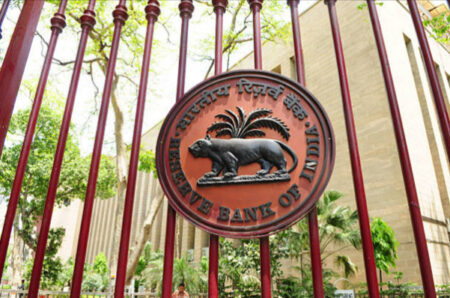Every year around 6.63 crore income tax returns are filled and the majority of these tax return filers are salaried persons.
It is commonly understood that salaried persons pay maximum rate of tax on their gross income because of the lack of avenues for tax deductions and rebates.
In this article, we will discuss the available methods to effectively reduce the net cash flow due to income taxes while being compliant with tax laws.
One should take care not to incur any expenses in the name of tax savings which does not serve any purpose.
In such a case, to increase your wealth it would be advisable to pay taxes and use the balance for personal use.

Salary Structure
Various components of the salary are either fully exempt or partially exempt. A salaried person should negotiate the most tax-efficient structure of the salary taking full benefit of these tax benefits.
Partially exempt
- House rent allowance: For a house rent paying salaried person, it is advised to avail and allocate 50% (metro city) / 40% (non-metro city) of basic salary towards such allowance.
- Leave travel allowances: Such allowance is subject to submission of travel bills through prescribed mode such as travel through the shortest possible route and air travel only being economy class. Further, there is a limit for the number of visits being 2 per block of 4 calendar years.
- The latest block is 2022-2025. A salaried person can use this allowance for re-creational visits or emergency visits to family.
- For Car owners who use vehicles for private and performance of duties: monthly ₹1800 or ₹2400 is allowed as tax-free based on the engine capacity. ₹1800 if engine capacity is less than 1600cc or ₹2400 otherwise.
- Meal coupon up to ₹50/meal is allowed tax-free to the employee for 22 days a month and ₹1100/month or ₹13,200 of your CTC can be allocated to a meal coupon. Such allotment is advisable only if one would be able to use such a coupon. If not, then the entire amount would be utterly wasted and thus, its is would be better to pay tax on such an amount and use the remaining for personal use.
- Gift voucher: Annual total of gift vouchers less ₹5,000 in a year is allowed as tax-free. These days everyone does shopping then hence one may ask HR to allocate ₹5,000 of your CTC to a gift voucher of a choice of brand.
Fully Exempt
These expenses are allowed tax-free. However, one should understand this is not any additional free money. But a portion of your CTC is allocated to these expenses and thus is not taxed.
All the bills are required to be submitted to HR based on which a portion of CTC is allocated to these.
- Cellular services
- Uniform and Attire allowances
- Children’s education (₹100/month) and Hostel allowance for children (₹300/month)
Note: Bill is required to be submitted and hence hostel allowance of ₹300/month should only be claimed if there are hostel expenses incurred. - Where posted in difficult areas, a certain amount is allowed as an allowance.
- Such areas include Siachen, Tribal areas, and Border/disturbed/difficult areas. [No bills needed for this!]
Investments
Investments are always to be made with future goals in mind.
Tax saving should never be the prime motive for any investment.
All individual’s specific requirements are different and hence one should consult their financial advisor for such matters.
The following only list the tax beneficial investment opportunities.
Section 80CCE Investments
A total of ₹1,50,000 is allowed as a deduction in respect of expenses incurred and investments made in the prescribed manner.
This is the blanket limit for sections 80C, 80CCC, and 80CCD (1).
Prescribed Expenses include Tuition fees for a maximum of 2 children, Repayment of house loan along with stamp duty and registry.
Prescribed investment avenues:
→ National Saving Certificates, notified units of UTI, notified bonds of NABARD, CBDT notified equity shares, debentures, units of mutual funds
→ Contribution to Specified/Recognized/Public provident fund, approved superannuation fund, unit linked insurance plans of LIC (ULIP), NPS (Tier II), National Housing Bank (Tax Saving) Term Deposit Scheme, Contribution to Pension Scheme (NPS) up to 10% of salary (including DA)
→ Deposits in Sukanya Samriddhi account for the girl child, five-year term deposit in a scheduled bank, Senior citizen saving scheme, five-year post office time deposit
Note: these investments have a lock-in period and such amount cannot be withdrawn within such period. If, withdrawn then deduction benefit is not available and any earlier benefits shall be made taxable in the current assessment year.
National Pension Scheme (NPS)
→ A person is allowed an additional benefit of ₹50,000 over and above the ₹1,50,000 limit under Section 80CCE.
→ In addition to this, a person is allowed a deduction of up to 10% of basic salary in name of the “employer’s” contribution to the NPS.
Thus, a salaried person may structure the CTC and allocate a portion to be designated as an employer’s contribution to the national pension scheme and free-up ₹1,50,000 limit which can be used through other investments/expenses.
Insurance policies
The insurance premium is one of the most misjudged expenses. Such products are often marketed for tax benefits and thus, people buy them.
However, one should understand that the tax you save is only a portion of the amount you pay as a premium.
If you are not benefiting from the policies then the balance premium you pay is entirely wasted.
So, if you do not need a policy, you should not buy it just for the sake of it.
- Mediclaim: If one makes the maximum benefit of these provisions, one can claim tax deductions up to ₹50,000 per year.
- Life insurance: premium paid for insurance policies are allowed as expenses and is covered in the 80CCE limit
Loans
Taking a loan is a serious matter and such a financial decision should not be made lightly. It is highly recommended to consult your financial advisor before taking such a step.
These methods are discussed only for education persons and one must not act upon them without their own due diligence on such matter.
- Residential Home loan: The government in order to promote affordable housing has introduced additional tax breaks for repayment of the home loan.
- As per the current laws, excluding the ₹1,50,000 cap u/s 80CCE which allows for principal repayment, a person can claim a deduction for “interest” amount repaid up to ₹2,50,000 to 3,50,000, depending on the value of house property and date of sanction of loan.
- Electric Vehicles: In order to increase the penetration of electric vehicles, the government has announced tax deductions for the interest amount paid on such electric vehicle
- Higher education: No limits on repayment of interest amount on loans taken from the financial institution or charitable institutions for pursuing higher education whether in India or abroad.
Concluding remarks
Generating more wealth, doesn’t mean to minimize the tax. The key is to understand when to pay tax and when not to. Incurring unnecessary expense to save tax only erodes your wealth.
Disclaimer
This article expresses the views of the author and Asiana Times only acts as a medium to dispensing the article.
Also, this does not constitute legal advice and does not create any attorney-client relationship. Exercise caution when acting on this information.
It is recommended you consult your own financial advisor on these matters.
Ownership of all creative media used belongs to their respective owners
Feature image→ https://www.caclubindia.com/articles/what-is-income-under-head-salary-44868.asp













